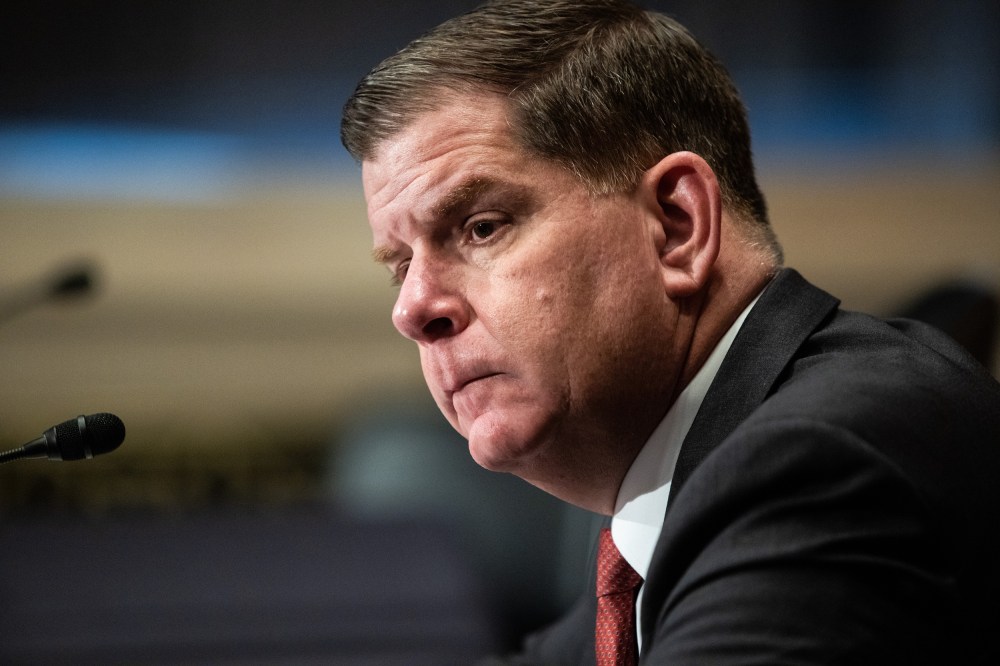This week, we learned that Marty Walsh, President Joe Biden’s stern-faced and very Bostonian labor secretary, is leaving his Cabinet position to take a much more lucrative gig as the head of the National Hockey League Players’ Association. The news felt like a metaphor for the Biden administration’s dealings with the labor movement as a whole: A lot of promise, a lot of unnecessary compromise and, ultimately, a disappointment that the working class of the future will likely look back on with regret.
Since the Reagan era, even Democratic presidents have largely treated labor unions as institutions to take money from with one hand, and keep at arm’s length with the other.
Biden is often hailed as the most pro-labor president in generations. It is a fair title for him, but one that also reflects an incredibly low bar. Since the Reagan era, even Democratic presidents have largely treated labor unions as institutions to take money from with one hand, and keep at arm’s length with the other.
Walsh, a former building trade union official and mayor of Boston, was handpicked by major unions for labor secretary. He was viewed as solidly pro-union and personally close to Biden; unions believed he would serve as a predictable conduit of labor’s wishes. But as Walsh exits after an unremarkable two years, it’s clear that the decision by unions to settle on him, rather than advocating for a more radical, aggressive pick, was a miscalculation.
To be fair, Walsh lived up to his billing. He helped shepherd through a number of beneficial but not transformative regulatory changes that strengthened the position of federal contractors, independent contractors and other workers. In 2021, he paid a visit to a picket line in Pennsylvania — something that you might assume would be de rigueur for labor secretaries, but which is actually rather rare. He was in most ways a solid, unexciting ally of the union establishment.

To understand why this is not enough, it’s important to understand the unique nature of the current moment. Biden’s election placed a rare pro-labor president in the White House, with full Democratic control of Congress, at a time when unions were enjoying their highest popularity in more than 50 years, and when workers across the country were newly radicalized by the grinding experience of the pandemic. This is, historically speaking, about as good as it can possibly get for the labor movement.
Meanwhile, the portion of American workers who are union members has been steadily falling for more than half a century as economic inequality increased. Those two things are directly related. Reversing the decline in union membership is vital to the survival of the American dream, and the health of our democracy itself. After decades of harsh political headwinds, unions finally had their chance to place a friend in the White House. They needed someone with the energy and imagination to finally put the working class back at the center of the economy, and who could help halt the long and damaging era of capital’s primacy over labor, one that has left millions of people unable to reach the middle class no matter how hard they work.
The labor movement could have demanded that Biden hire someone in the mold of Frances Perkins, President Franklin D. Roosevelt’s crusading labor secretary who helped to make the New Deal a reality. Instead they picked … Walsh. This is the political version of the Portland Trail Blazers drafting Sam Bowie ahead of Michael Jordan in the 1984 NBA draft.












